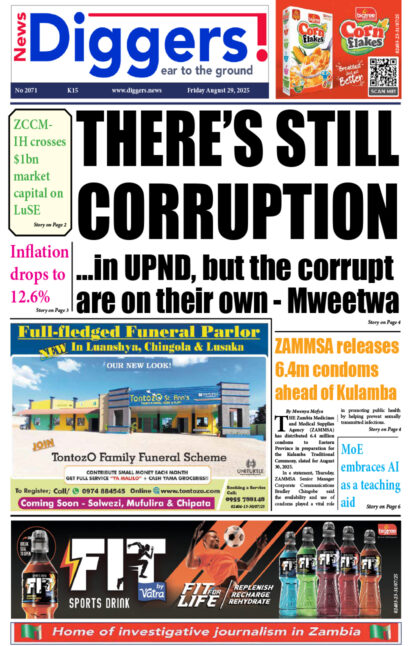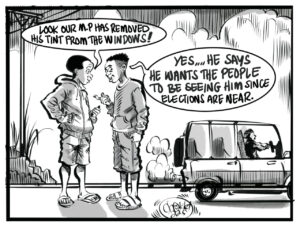THE Constitutional Court has dismissed preliminary issues raised by Kwacha PF member of parliament Joseph Malanji in the case involving the nullification of his seat.
Malanji was seeking, among others, an interpretation on whether or not an MP whose seat is nullified by the High Court and has appealed, should attend parliamentary sittings before the appeal is determined.
In a ruling, the court said Malanji did not give any explanation as to why the issues which arose under the petition should be determined as preliminary issues as opposed to being dealt with during the determination of the petition.
This is a matter in which Governance Elections Advocacy Research Services (GEARS) Initiative petitioned the Constitutional Court, questioning the continued attendance of Parliamentary sittings by PF members whose seats were nullified in the High Court.
Gears Initiative cited Bowman Lusambo, Joseph Malanji, Mutotwe Kafwaya, Sibongile Mwamba, Luka Simumba, Allan Banda Kabwe, Taulo Chewe, Kalalwe Mukosa, Christopher Chibuye and the Attorney General as respondents in the matter.
But Malanji raised preliminary issues and asked the court to interpret whether or not it has jurisdiction to hear and determine the petition in light of article 73(4) of the Constitution of Zambia Amendment Act No.2 of 2016 and the ruling of the court dated December 27, 2016, between Margaret Mwanakatwe and Charlotte Scott and two others.
He also wanted the court to explain whether or not the petition was not an abuse of court process owing to the fact that he filed an appeal against the High Court judgement on November 23, 2021 and for the court to determine whether or not it had powers to order the registrar of the High Court to deliver a report containing the names and particulars of all persons implicated in acts of corrupt and illegal practices during the trials of the petitions.
“Whether or not an MP whose seat has been nullified by the High Court and has appealed to the Constitutional Court should continue attending the National Assembly sittings before the appeal was determined by the Constitutional Court and whether or not the ruling of the Speaker that ordered Malanji [to] stay away from the National Assembly whilst he was waiting for his appeal to be determined does not constitute acts of law meant to undermine the judicial authority or meant to scandalise this court,” read the application.
Malanji further asked the court to interpret whether or not the Constitutional Court may order for him to be attending the sittings of the National Assembly while prosecuting his appeal before it.
But in a ruling read by judge Annie Sitali on behalf of other Constitutional Court judges, on February 15, 2022, the court dismissed the motion and further discouraged parties from raising unnecessary matters as preliminary issues.
“We similarly are of the view that the remaining five issues raised in the notice of motion will be best dealt with within the context of the petition. For that reason, we find no merit in them and accordingly dismiss them. The motion, therefore, wholly fails and is dismissed. The court, however, reiterate counsel to the litigants against the tendency to seek to have the matter raised by way of petitions disposed of as preliminary issues under Order 14 (a) of the White Book, particularly where the issues raised as preliminary issues can properly be raised in an answer to the petition,” said the court.
“We, therefore, strongly discourage parties from raising unnecessary matters as preliminary issues.”
Judge Sitali referred the matter back to a single judge of the Constitutional Court to schedule the petition for hearing and ordered that each party bears its own costs related to the notice of motion.
























